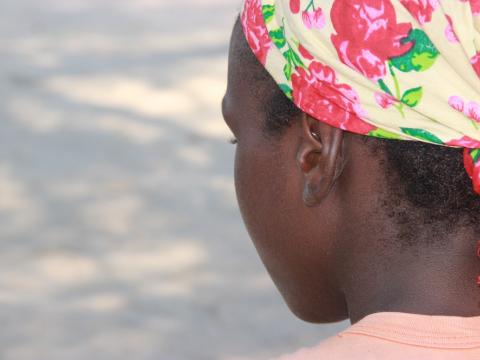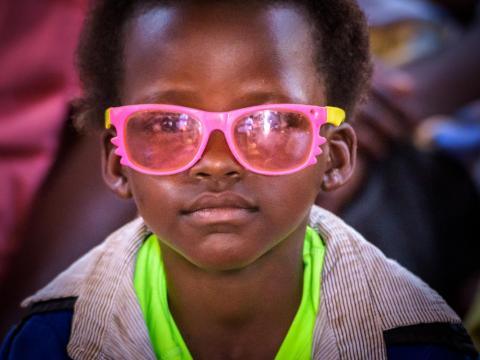
I hate being right about violence against children
Just few weeks before the world went into lockdown, a friend of mine contacted me asking for advice. She was trying to help a young girl, I’ll call her Sara, struggling with mental health issues resulting from violence at home and in school. Thankfully Sara eventually found help. However, millions of children globally who were trapped, stuck at home by COVID-19 did not. It was Sara I was thinking about when I started seeing news reports about the increase in violence at home due to the lockdown—first on my local news in Cyprus, then on international news channels.
After just one month of the pandemic, World Vision published a report projecting that 85 million more children are at risk of experiencing violence against children due the confinement measures initiated to address pandemic. Making projections like this can be tricky. We knew the risks, but we strongly felt that it was important to raise the alarm about a hidden crisis that was unfolding, that our staff was starting to see. I wanted us to be wrong and our projections of a 32% increase in violence to be a significant overstatement.
Unfortunately, that was not the case. Every time we have spoken to children, like we did recently across Middle East and Eastern Europe, our worst fears have been confirmed. The report Act Now: How a Global Pandemic is Changing the Lives of Children in the Middle East and Eastern Europe Region, indicates that about 40% of children have experienced physical violence themselves and that 20% know of other children experiencing violence by those they know. Children put actions to address this threat high on their agenda—hardly a surprise.
Home is the one place where every child should feel safe. Parents are a child’s most important support mechanism and should be a shield from violence. But when that shield is under extreme duress - due to mental illness, substance abuse, economic crisis or hardship - it cracks and children often find themselves in the firing line. Physical violence, child marriage and sexual exploitation of children all increase. This is exactly what happened this past year. Measures to combat COVID-19 have created a perfect storm exposing parents to stress and increasing the vulnerability of children to violence, especially those already living in violent households.
In stark contrast, when families and parents are resilient and helped to cope with crises like COVID the shield stays strong and children are protected from violence. Over 80% of children in our report said that families have grown closer in times of crisis and that their parents and families were there for them. Supporting parents and helping families to be strong and caring is one of the proven solutions to end violence against children. This is why World Vision, and so many other organisations and governments, have stepped up programmes and interventions to support parents during this crisis.
Positive parenting resources, online family support mechanisms and, in some countries, additional social protection measures were put in place. I have never seen such an effort to support parents and caregivers. Even my children and I benefited from resources made available in our region. Parenting and home schooling three kids while working full time is hard for anyone; imagine having to cope while already struggling with poverty, discrimination and conflict. As the pandemic continues, the challenge is how to maintain and scale up these efforts to help parents be even more resilient.
If you are policy maker or a donor, make the decision to invest more into parenting support programmes and to reach more children and families. If you are parent, even if things are tough, hug your child and tell them how precious and loved they are.
We are approaching one of the most sacred Christian holidays. For many people this is the season of hope, giving and love. These are the true Christmas gifts children needs to thrive.
To read World Vision’s COVID-19 Aftershocks: A Perfect Storm report click here
To learn more about World Vision’s Child Protection programming click here and its COVID-19 programming click here.
Tamara Tutnjevic is World Vision’s Senior Policy Advisor on Ending Violence Against Children. Follow her on Twitter at @ttutnjevic_vac

